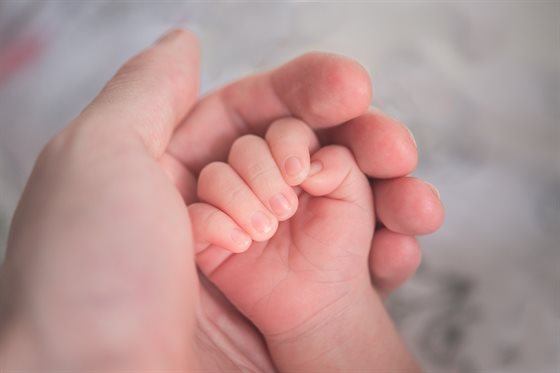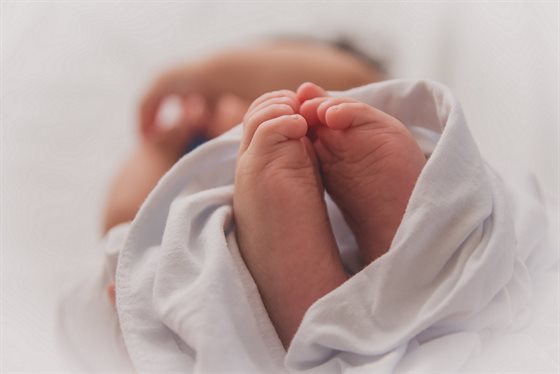Millions of couples have been living closer together than ever before due to the coronavirus pandemic lockdown, so it's hardly surprising that speculation of a potential baby boom is rife. But what does conceiving during lockdown really look like - especially for those couples and women who might need fertility treatment or access to family planning services?
PhD researcher Sasha Loyal takes a closer look at the impact the pandemic has had.
The coronavirus pandemic is continuing to have a significant impact on women’s and couples’ reproductive lives. Social distancing and ‘stay at home’ measures have already seen a significant disruption to fertility treatment, maternity services and access to family planning services, leading to concerns about how this will impact childbearing behaviours.
At the start of lockdown, predictions of a looming ‘baby boom’ circulated COVID-19 commentary, sparking worry about how maternity services will cope in nine months time. With the uncertainty this pandemic is continuing to fuel, conversations have now shifted towards a ‘baby bust’, with the new normal sparking fear in those who were planning to start a family, leading them to avoid having children during these unprecedented times.

Photo by Hu Chen on Unsplash
Questions of when to have children are socially shaped and decisions about conception are inherently relational and political. My PhD thesis focuses on questions of reproductive timing and when women feel is the ‘right time’ to have children. It shows how women have a desire to accomplish several milestones before childbearing, including settling into a career, financial stability and having a home. However, the precarious economic environment that the coronavirus is continuing to generate is likely to affect the fulfilment of these conditions, considered by many as necessary to perform the role of parent.
UK rates of unemployment are predicted to peak later this year, and many companies have reduced income for employees working from home. The prediction of a recession is also likely to cause worry about future financial difficulties and to impact decisions around the timing of parenthood, for those who wish to conceive in more predictable times. Feeling psychologically ‘ready’ before having children was also a significant consideration for women in my study, however mental health services have seen a significant increase in calls, with the pandemic impacting individuals’ sense of stability.
While pregnant women do not seem to be at greater risk of coronavirus, this group were classed as ‘vulnerable’ as a precautionary measure by the UK government and advised to self-isolate for 12 weeks. Despite the guidance on coronavirus and pregnancy published by NHS , RCOG and others, it is too early to know the real implications for the outcomes for pregnant women who have had coronavirus and their babies, leading to greater concern about the health risks of conceiving during this time.
The potential for social distancing measures to continue long-term, and worries of a second peak, may also provoke fears around the quality and amount of care pregnant women can expect to receive. NHS Trusts across the UK have taken varying measures to impede the spread of coronavirus including reduced face-to-face hospital appointments for pregnant women, cancellation of group antenatal classes and virtual NCT and postnatal classes where possible. These formal care systems and networking events represent key opportunities for the support of pregnant women, which are more important than ever during this time.

Photo by Luma Pimentel on Unsplash
Birth choices have also been disrupted with the suspension of homebirth services in some NHS Trusts, cancellation of planned c-sections and concerns about the presence of birth partners during labour. Pregnancy helplines have seen a rise in calls from anxious mothers-to-be, worried and confused about the absence or reduction of maternity care. Isolated new mothers struggling with postpartum mental illnesses, which are likely to be amplified by the current pandemic, are also experiencing limited access to professional support services.
The suspension of fertility treatment has created a significantly distressing time for those who were just about to start or were in the middle of their journey of conceiving through assisted reproductive technologies (ARTs). The ease of restrictions comes with hope and the Human Fertilisation and Embryology Authority (HFEA) accounted the reopening of fertility clinics in May but restrictions on treatment still apply in order to maintain safe care and practice for both staff and patients.
The postponement of treatment has created significant time pressures, particularly for older patients whose chances of successful treatment are already lower. Speculation of a ‘baby boom’ assumes that women are able to get pregnant as they choose, but the pandemic has created a devastating blow for those who will have to wait longer for their chance to have a child.
The extension of frozen egg, sperm and embryo storage from 10 years to 12 presents promising news and is a positive step for those whose plans to start a family have been delayed due to the pandemic. Yet it is hard to picture what it will be like in even two years from now, with predictions that the aftermath of coronavirus will be felt long-term.
The disruption of reproductive lives this pandemic has caused has reaffirmed the need for the #ExtendTheLimit campaign for egg freezing, to recognise factors that may lead women to have children later in life beyond their control. Time limits may pressure women to start fertility treatment before they are ready or make the difficult decision to destroy their eggs, even after the virus has stopped spreading but the economic and psychological impact could still be felt.
This is a significant and worrying crisis for those struggling to access family planning services, and whilst there may be an increase of unplanned pregnancies due, in part, to the limited availability and choice of contraceptive options, recent predictions of a baby bust, not boom, may be the reality.

Sasha Loyal
Sasha is a research fellow and part-time PhD student at DMU's Centre for Reproduction Research
Posted on Monday 29 June 2020